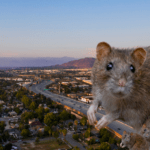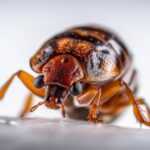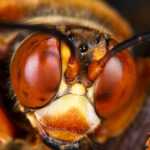Keeping pests at bay is essential for any business, but it’s perhaps the most critical for restaurants. Nothing will lead to negative reviews or get your business shut down faster than having unwanted bugs and rodents in your restaurant. Even if these bugs are mostly harmless (like a spider), the mere sight of them will send customers running to Yelp to leave unflattering comments. That’s why restaurant pest control is so vital!
Here in the Pacific Northwest, we see five common pests in restaurants. If you see any of these in your establishment, please contact a pest control company to get the problem under control before it’s too late!
Rats and Other Rodents: You’ll Need Restaurant Pest Control for These
One of the most considerable pest problems for restaurants is rats – especially in the Seattle area. It’s so bad that Seattle has historically ranked in the top 10 worst cities for rats.
With constant construction and an environment conducive to rat life, these little creatures thrive in dense, urban environments. And, yes, they do find their way into restaurants, seeking food and shelter!
Since one pair of these little creatures can produce as many as 15,000 offspring in a single year, it’s essential to fix the problem before it gets out of hand. At first sight of any rats in your restaurant, it’s crucial to get a restaurant pest control service out ASAP!
Cockroaches
Cockroaches are another common pest in the Pacific Northwest. The most common cockroach in the area is the German cockroach, and it appears everywhere – within homes, restaurants, hospitals, and every other dwelling. In particular, this cockroach wants to live in any place that serves food. You’ll typically find these bugs close to the kitchen since they’ll want to be where the food is.
Ants: These Also Require Restaurant Pest Control
Another pest that restaurants in the Pacific Northwest frequently encounter is the venerable ant. These are usually sugar ants, although many different ant types might take up residence in your restaurant.
Ants like to find spaces with excess moisture, sugary foods, grease, and uncovered trash. Unfortunately, your restaurant – where there’s a lot of food – makes for a perfect environment!
Sugar ants are tough to kill because they have multiple queens and can have numerous colonies. Even if you kill one, you’ll still have issues. So, when you see ants, call a restaurant pest control expert!
Flies
Flies are also a common nuisance in the Seattle-Portland area. Flies like moisture and decaying matter. You might encounter four types of flies: fruit flies, house flies, drain flies, and phorid flies. Each one brings with it many issues, the largest of which is that these little winged insects can spread diseases. They feed on decaying matter, and then they carry those diseases with them to the food prep areas.
Flies are notoriously hard to get rid of completely. There are ways to fix the problem, but they’re much harder to eliminate than people think without professional pest control assistance.
Wasps and Bees
You typically won’t find these in your establishment, but you might discover nests of them around your building, creating potential harm for customers. Consider the following scenario. Your customers are seated on an outside patio. Unbeknownst to them, there’s a wasp nest on the exterior of your building. They have sugary foods, which attract wasps.
At a bare minimum, your guests will have a lousy time. In the worst-case scenario, they might wind up getting stung, leaving bad reviews, or requiring emergency medical treatment.
If you see wasps or bees setting camp up around your restaurant, you should consider getting rid of them as soon as possible!
When in Doubt Call a Professional Restaurant Pest Control Company
Your business, brand, and reputation are too important to trust to ad-hoc pest control. When you first see potential problems, whether bugs or rodents, you need to have a professional restaurant pest control company assess your particular situation and recommend treatment methods. That way, both your customers and the state health inspectors will be happy!
"*" indicates required fields
"*" indicates required fields




